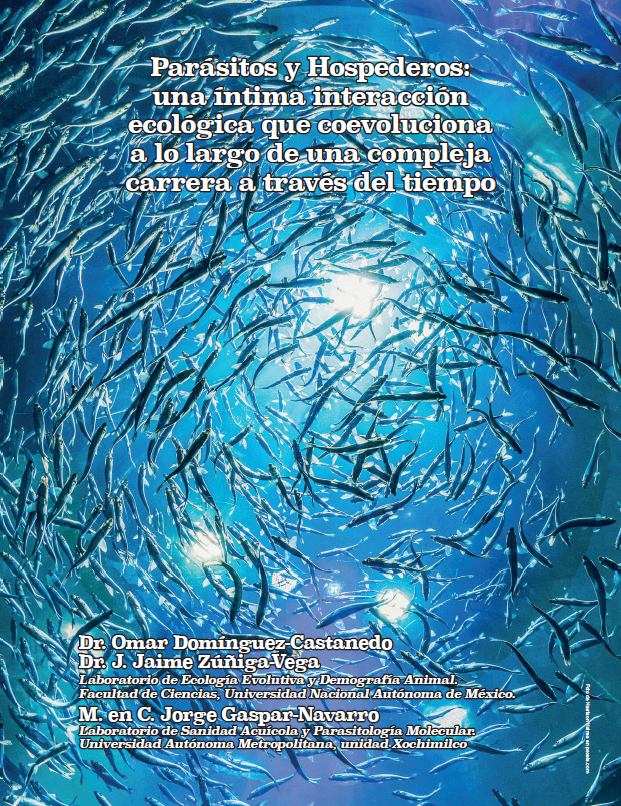Parásitos y Hospederos
una íntima interacción ecológica que coevoluciona a lo largo de una compleja carrera a través del tiempo
Abstract
The parasitism is a negative ecological relationship of physiological exploitation between two species, in which only one of the antagonistic organisms involved benefits: the parasite. The other involved, the host, is an organism from which the parasite obtains nutrients during one or all phases of its life cycle. This article analyzes this relationship from an ecological and evolutionary perspective, taking helminth as parasites and fish as hosts, as an example to exemplify the adverse effects derived from this relationship. Among the negative effects that parasites can inflict on their hosts are the reduction of reproductive success or survival; the decrease or loss of body condition (decrease in health), and the influence or manipulation of the “normal” behavior of the hosts, in a clear examples of coevolution in one of the most interesting and widespread ecological relationships in nature: parasite-host relationship.
Downloads
References
Domínguez-Castanedo, O., Gaspar-Navarro, J. y Zúñiga-Vega J. J., Does the infestation by trematode parasites influence trade-offs between somatic condition and male reproductive traits in a viviparous fish? J. Fish. Dis, 0:e14038. https://doi. org/10.1111/jfd.14038, 2024.
Giles, N., Predation risk and reduced foraging activity in fish: experiments with parasitised and non-parasitised three-spined sticklebacks, Gasterosteus aculeatus. J. Fish. Biol, 31, pp. 37–44, 1987.
Hagmayer, A., Furness, I. A. y Pollux, A. B., Parasite infestation influences life history but not boldness behavior in placental live-bearing fish. Oecologia, 194, pp. 635-648, 2020.
Janzen, H. D., When is it coevolution? Evolution, 34[3], pp. 611-612, 1980.
Lemly, D. y Esch, G. W., Effects of the trematode Uvulifer ambloplitis on juvenile Bluegill Sunfish, Lepomis macrochirus: ecological Implications. J. Parasitol, 70[4], pp. 475-492, 1984.
Stearns, C. S., The evolution of life histories. Oxford University Press, 1994.
Van Valen, L., A new evolutionary law. Evolutionary Theory, 1, pp. 1-30, 1973.






